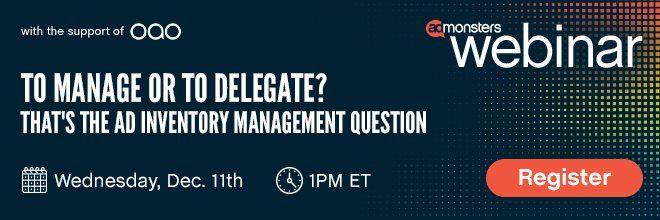 |
||||||||||
|
||||||||||
| Will Google Be Forced to Break Up Its Empire? |
 |
| Can Google catch a break? If you ask regulators around the world, the answer is no. They are not letting their foot off Google's necks. The Justice Department and several states have asked a federal court to force Google to sell its Chrome web browser and potentially its Android operating system. Still, it's no surprise; we know they want to dismantle the company's dominance in online search. The Justice Department's request follows an August ruling by Judge Amit P. Mehta, who found Google had illegally maintained a search monopoly. Along with divestitures, the government proposed barring Google from making its services mandatory on Android devices and stopping exclusive agreements with companies like Apple to make Google the default search engine. Google's president of global affairs, Kent Walker, called the proposals "extreme," arguing they go beyond the court's decision. Walker elaborated, "D.O.J.'s wildly overbroad proposal goes miles beyond the court's decision. It would break a range of Google products—even beyond Search—people love and find helpful in their everyday lives." Legal experts, however, suggest the government faces challenges convincing the judge, citing past difficulties in breaking up companies like Microsoft. Meanwhile, Google will present its own remedies by December. As antitrust efforts target tech giants like Apple, Amazon, and Meta, the case against Google could set a precedent, particularly in how regulators address bundled services and emerging technologies like AI. – AB |
 |
| Apple Introduces New Ad Units, and It's a Potential Game-Changer for News Publishers |
| Apple is taking a major step in its advertising strategy by directly selling ad inventory for Apple News. They are introducing new ad units to boost revenue for the company and its publishing partners. Previously reliant on vendors like NBCUniversal, Apple now offers premium sponsorships for events like the Met Gala and the U.S. Open, alongside 17 ad formats, including banner ads, video ads, and carousel units. Advertisers can also sponsor specific Apple News feeds to align with targeted topics. Publishers will earn 70% of the ad revenue from sales within their articles and a share of feed-based ad revenue tied to engagement. Notably, publishers retain 100% of the revenue from ads they sell directly in the app. Considering how much advertisers have been straying away from the news, hopefully, the buy side will take the bait. Some advertisers are afraid to touch news even with a ten-foot pole because of brand safety concerns, but fingers crossed that this is the start of a new normal between the buy and sell sides. As Jana Meron of The Washington Post said at Prog.IO, this fear is killing publishers' revenue. But, as one of the most popular news apps, it is a key marketing tool in the tech company’s arsenal. With this new initiative, Apple hopes to attract more publishers to invest in the platform and to advance its free content offerings. Smart move, because to some publishers, paywalls are a no go. – AB |
| Permutive & Index Exchange Double Down on First-Party Data |
| Permutive and Index Exchange joined forces to amplify first-party data, creating a new marketplace to empower publishers to collaborate and activate their audiences, giving buyers privacy-safe targeting solutions at scale. With 70% of the open internet already cookieless, this partnership offers publishers a lifeline to unlock value from their signals without compromising user trust. This push to premium audiences was the topic of a recent keynote at Admonsters Publisher Forum Scottsdale, where Sparrow Advisers’ Ana Milicevic challenged publishers to move beyond buzzwords and focus on audience value. “Premium isn’t just big budgets—it’s about trust, relevance, and results,” she noted. Permutive and Index Exchange seem to be taking that seriously, banning MFA inventory and putting publishers back in control of their data. Moderating a buy-side session at the recent Permutive Programmatic Summit, Elizabeth Brennan, GM Advertising, Permutive, said “Transparency on both sides is key. Publishers need to understand advertisers’ goals, but advertisers also need to grasp the value publishers bring with their signals.” But what does “premium” really mean in this context? “The idea of a premium internet, according to who? Premium according to what?” asks Digital Innovator Albert Thompson, who recently told me, “It’s about finding the niches where culture, attention, and outcomes intersect.” In the cookieless era, Permutive and Index are betting that premium isn’t a static label—it’s a strategy. By leveraging first-party data to gain a more nuanced understanding of audience behavior and preferences, advertisers can reach truly valuable audiences. Now it’s up to publishers and advertisers to embrace this partnership and redefine premium for the open internet. — LdJ |
| @{optoutfooterhtml}@ |










